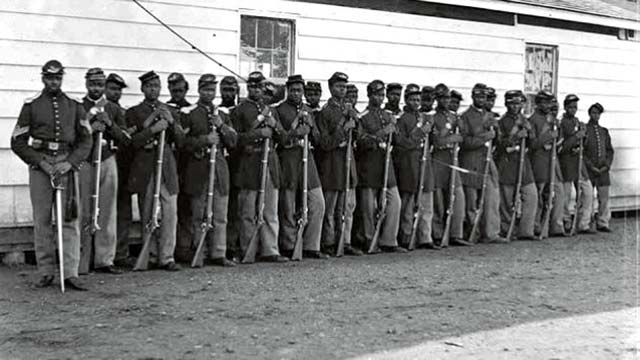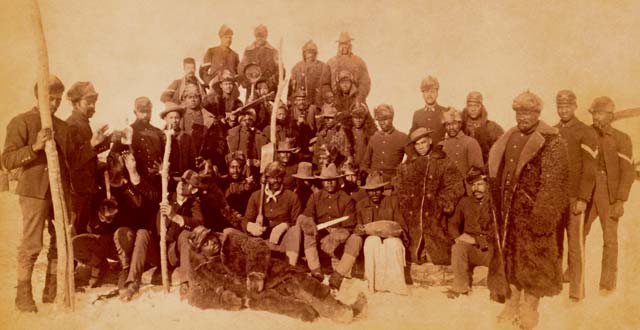Black History Month, also known as National African American History Month, is an annual celebration of achievements by Black Americans and a time to recognize the positive impact they’ve had on the history of the United States and the Defense Department.
Black people have fought in every United States war, from the Revolutionary War through the wars in Iraq and Afghanistan. Ninety African Americans have been awarded the Medal of Honor.

Yet, throughout most of American history, Black service members were placed in segregated units. Desegregation didn’t occur until Jan. 26, 1948, when President Harry S. Truman issued Executive Order 9981 directing the armed services to integrate.
Active-duty service members number 1,319,283; of those, 227,974, or 17.3 percent, are African American, as of December 2021.
According to the U.S. Census Bureau, in 2020, the Black or African American population was 41.1 million, representing 12.4 percent of the U.S. population.

Notable Dates
Black people, both slave and free, served on both sides during the Revolutionary War. African Americans also served on both sides in the War of 1812 (1812-1815). Many served with the British in order to gain their freedom and resettle in non-slave nations, particularly Canada, Bermuda and Sierra Leone.
In the Civil War (1861-1865), over 186,000 African Americans fought for the Union Army and Navy. A lesser number of African Americans were used as laborers on the Confederate side.

Six regiments of African Americans, known as buffalo soldiers, served in the Indian Wars from 1863 to the early 1900s and in the Spanish-American War in 1898.
About 367,000 African Americans service members served in Europe during World War I (1917-1918).
Around 1.3 million African American service members served during World War II (1941-1945).

During the Korean War (1950-1953), about 600,000 Black service members served in the armed forces.
About 300,000 African Americans served in the Vietnam War (1961-1975).
The two top-level Black Americans in DOD have been Army Gen. Colin Powell, who served as chairman of the Joint Chiefs of Staff from 1989 to 1993, and Secretary of Defense Lloyd J. Austin III who was sworn in January 2021.
History of the Celebration
The origin of Black History Month is associated with the noted African-American historian Carter G. Woodson. In 1926, he initiated the celebration of Negro History Week during the second week in February.
February was chosen because that is the birth month of Frederick Douglass, an abolitionist and social reformer, and President Abraham Lincoln, who abolished slavery.
The celebration was expanded to the entire month of February in 1976 by President Gerald Ford; since that time, every president has designated February as Black History Month.
During his 1976 Black History Month announcement, Ford linked the commemoration to the nation’s 200th anniversary of the Declaration of Independence that year.
On Feb. 11, 1986, Congress passed Public Law 99-244, which designated each February as “National Black (Afro-American) History Month.”
Canada, Ireland and the United Kingdom also celebrate a Black history month.


